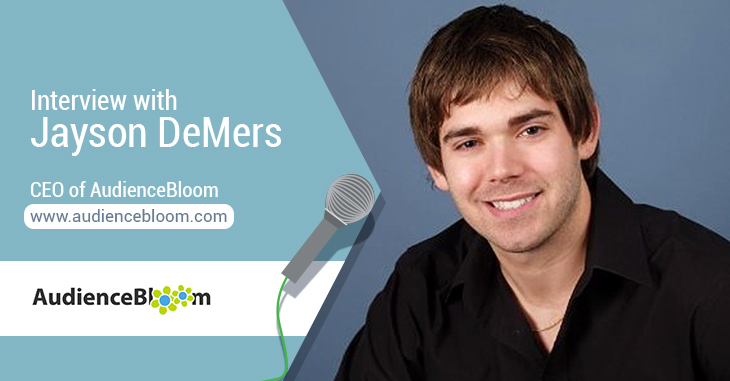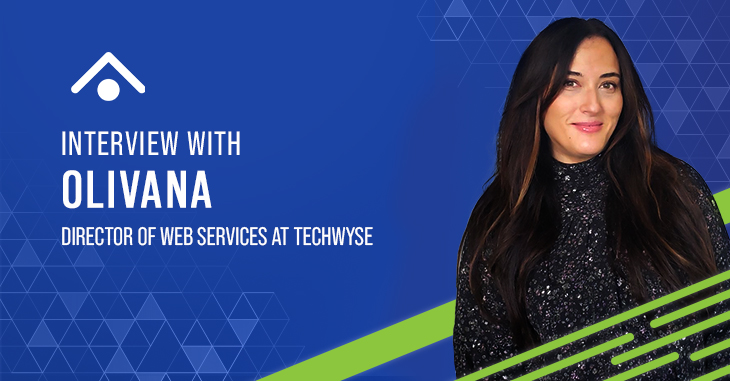There aren’t many SEO or content marketing enthusiasts who haven't read at least one of Jayson DeMers’ blogs. Jayson is the CEO of AudienceBloom, a content marketing agency based out of Seattle. He guest blogs and publishes more than anyone else in the world, and is one of the most notable experts on guest blogging. His articles in Entrepreneur, Forbes and Inc. have been intensely debated and talked about by many industry authorities and influencers alike. Apart from his entrepreneurial endeavours, Jayson is also a guest lecturer on marketing at the University of Washington.
I reached out to Jayson for an interview in December last year right around the start of the holiday season. He was kind enough to set aside some time for answering my questions about his approach to guest blogging.
We went on to discuss his earlier career before starting his agency, his stints in online marketing jobs, and his recipe for success in guest blogging. He also shared his insights on link building.
“I graduated from the University of Washington in 2008 with a degree in Business Administration. I went to work full-time shortly thereafter for a couple different companies, working in online marketing.
In April 2010, I formed AudienceBloom, which was originally a social media consultancy. It has since evolved to become a full-service content marketing agency. We’re probably best known for our world-class link building services, which we’re very proud of. Marketing agencies and brands of all sizes use us for acquiring links and brand mentions.”
From Forbes to Huffington Post to Inc. to Harvard Business Review, Jayson writes for a lot of online publishers, and has been cited as a guest blogging expert all across the internet. I’ve always wanted to know how he managed to be a guest blogging rockstar.
“Time, persistence, and dedication. I practice what I preach; content marketing is our best tactic for acquiring inbound leads, so I allocate a good chunk of my time to learning and writing.”
Needless to say, content marketing is what brings in leads for most agencies who are good at what they do. And as Jayson says, not just leads:
“It drives traffic, builds brand visibility, and builds brand trust—all of which leads to increased revenue.”
[Tweet "Content Marketing drives traffic, builds brand visibility, and builds brand trust. "]
However, guest blogging at scale requires the ability to churn out a lot of quality content on a regular basis. It’s important to stay organized with all you do.
“Organization, for me, is all about schedules. I use my iPhone to set reminders which go off throughout the day to remind me to do various things such as eat snacks, drink water, exercise, stretch, and yes, write articles. Get on a schedule, if that works for you, and abide by it to ensure you get all the things done that you want to get done each day.”
Last year, Shareaholic reported that the top eight social networks drove about one-third of all traffic to sites. I was curious to know how well social media promotion worked for him.
“Social media isn’t a high driver of traffic for us, nor is it, really, for any business in our space ... However, social still works daily to grow our audience with relevant, targeted followers, and to provide value for those followers with the content we produce. It’s a big part of our content amplification process, which is important because content is useless if nobody knows it exists.”
Also, measuring the success of your content marketing efforts is as important as your effort itself. As they say, if you can measure it, you can improve it. And this is how Jayson does it:
“I look at organic search traffic and referral traffic. I break down referral traffic in Google Analytics by the specific referring URL so I can see which articles are driving the most referral traffic. That helps me understand what makes people click, and what article topics really resonate with people.”
Also, over time, it’s important to track the impact on rankings of link building through guest blogging.
“I wrote about what I call the 3 pillars of SEO in my article at Forbes.
Basically, the pillars are content, links, and social media. Inbound links from other websites count as "votes" of credibility, authority, and relevance for any website.
Multiple correlation studies have shown that the quality of links (measured by Domain Authority) and quantity of links, especially the number of unique linking domains, are some of the strongest ranking factors.
Search engines see links to a website and use them as the main factor in their ranking algorithms. Basically, the more inbound links, the better a website will rank in organic search. I wrote about all the benefits of link building here.”
Reporting performance metrics to clients, on the other hand, is something that many agencies struggle with. Often results vary from client to client, and it’s difficult to come up with a one size fits all approach that satisfies the needs of all clients. But Jayson has found a solution that works for him and his team.
“We do track rankings daily for each of our clients, but they are just one piece of the KPI puzzle. We report other important metrics as well, such as organic search traffic, referral traffic, social media traffic, bounce rate, and a number of other metrics to our clients. Together, these combined reports form the basis for our analysis and recommendations to our clients.
Every client situation is different; some see phenomenal results with link building, and others see less impressive results. In such cases, there is usually a lack of one or two of the other pillars of SEO I described earlier. When we see weaknesses that need to be addressed, we focus on solving those weaknesses for our clients.”
No matter how solid your reporting strategy is, some SEO clients simply won't be satisfied—this dilemma is perhaps most astutely outlined in Moz's piece 10 Different Types of Clients.
“These articles I’ve published on Inc and Forbes sum up my thoughts most thoroughly.”
He brilliantly puts it this way in his Forbes article :
“Look at the bigger picture when dealing with consistently unreasonable customers or clients. Look at what’s really important, and ask yourself if repeatedly attempting to please an unpleasable customer is really the best business decision.”
Jayson is at the point in his career that he has a large enough audience that his blogs sometimes garner reactions and comments from major players and influencers. For example, his article Why Modern SEO Requires Almost No Technical Expertise was widely read, and even caught some heat from some webmasters a few months back. The article also triggered a response from Rand Fishkin, to which Jayson wrote a compelling reply.
In our interview, Jayson weighed in on the reasons he thinks this article got such a great deal of traction.
“I think it got so much attention because it scared SEO professionals, causing them to worry that their jobs could be put at risk if their clients or bosses felt that their skillsets weren’t necessary anymore. I often write about how DIY SEO isn’t difficult—it’s just time consuming.
Assertions I made within the article were also repeatedly misrepresented or misunderstood by commenters and industry bloggers who posted responses to it, including by Rand himself (numerous times) in his Whiteboard Friday response.
For example, I said (clearly, even with the title of the article) that it requires almost no technical expertise. I didn’t say it requires absolutely none.
Additionally, I was criticized for over-simplifying the on-site elements of SEO that are absolutely required. Rand himself listed a couple dozen factors that I didn’t touch on within the article, perhaps suggesting I lacked knowledge of the existence of those factors.
The thing is, Entrepreneur.com is not a publication that focuses on SEO experts; it’s for entrepreneurs who need to know the basics to get their businesses up and running. I was writing for Entrepreneur.com’s audience; not for SEO industry professionals. The point of the article was to inspire entrepreneurs with the feeling of 'I can do this'.
Furthermore, Entrepreneur.com limits word counts to 800 words per article (not a hard rule, but a guideline they’ve requested which I always try to abide by). So, the article had to be succinct and get to the point. I could write the definitive guide to technical SEO, but Entrepreneur.com would not be the place for it.
So the combination of fear, misunderstanding of the intent of the article, a lack of knowledge of the target market for whom the piece was written, and repeated misrepresentations of the claims made within the article combined to form an emotional response which I’d categorize as anger and fear."
I told Jayson that, to be frank, sometimes I wish people would get angry about my posts. To some extent, that strong emotional reaction is what makes posts go viral. And Jayson doesn’t disagree:
“Eliciting an emotional response within content is a fantastic way to drive engagement, shares, views, and traffic, and that’s exactly what we saw happen with this piece.”
[Tweet "Jayson DeMers: Eliciting an emotional response within content is a fantastic way to drive engagement, shares, views, and traffic."]
The release of the full version of Google’s Search Quality Rating Guidelines created quite a buzz in the digital marketing community last November. Not surprisingly, Jayson was among the first to write about the main takeaways from the guide. He talks about how the E-A-T factors ( Expertise, Authoritativeness, and Trustworthiness), the careful placement and use of website content, and meeting the needs of users are notable insights from the new version of the guidelines. I highly recommend taking a look at the article here.
Thank you to Jayson for setting aside the time to answer our questions and share his insights.
Do you have any questions for Jayson? Feel free to post them in the comments below! Both Jayson and I will be keeping a close watch.







on
Great article! How many times does Jayson guest post each month and for how many publications?
on
That’s highly tentative! I’m unsure as to how many times he would guest blog every month. He is a columnist at Forbes, Inc, Entrepreneur, HuffingtonPost, BusinessInsider, SearchEngineLand, SearchEngineWatch, and SearchEngineJournal.
Apart from this, he contributes regularly to publications like the Wall Street Journal, Harvard Business Review, and Mashable, etc.